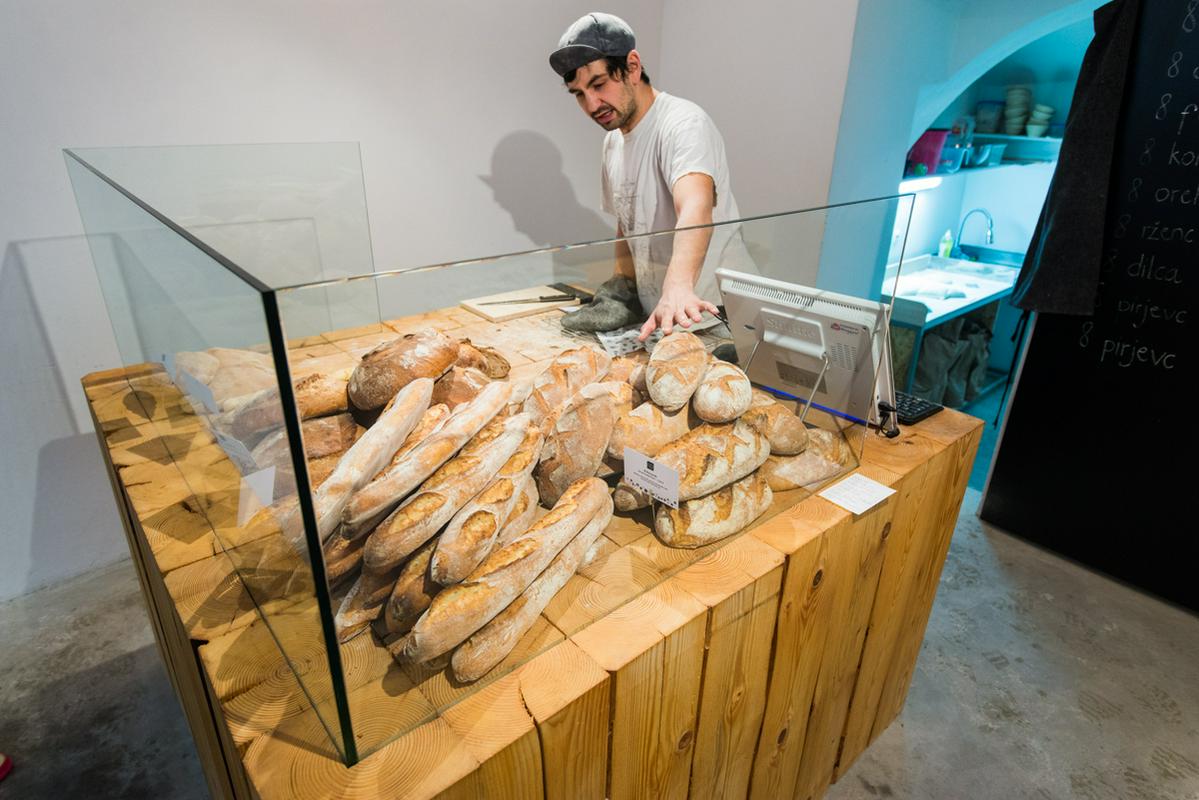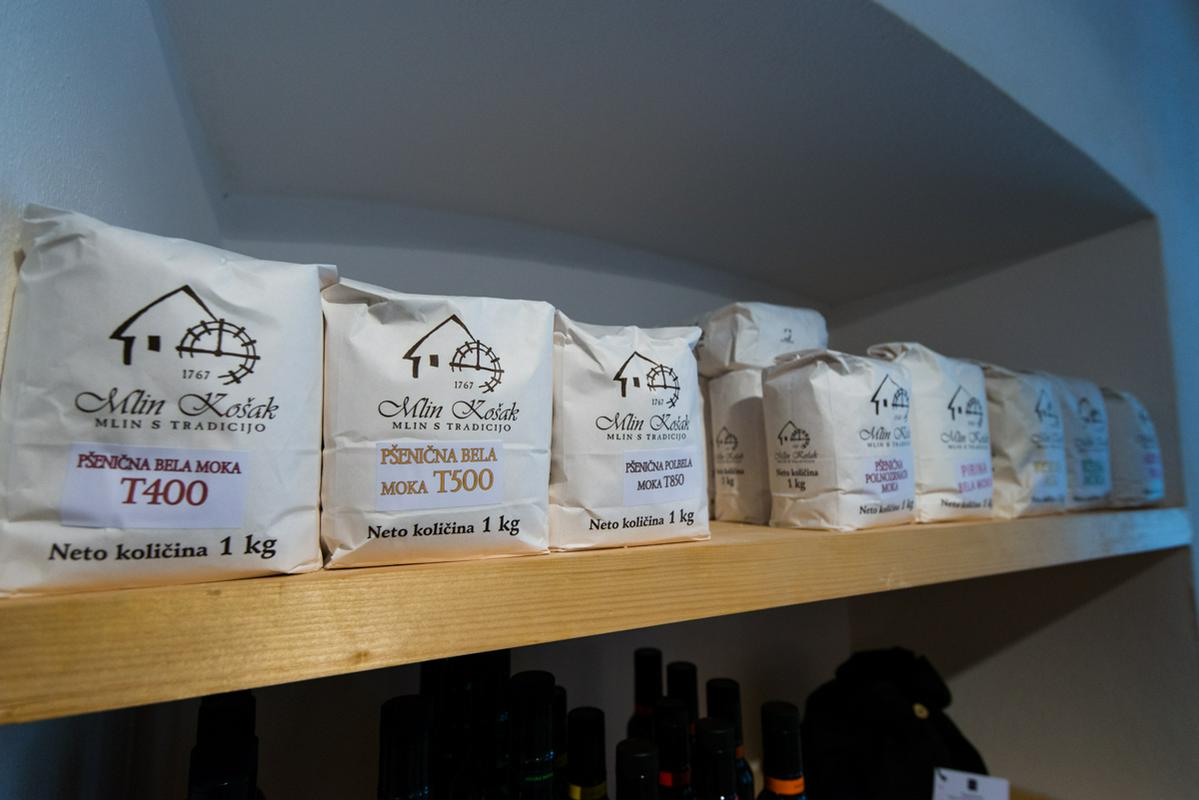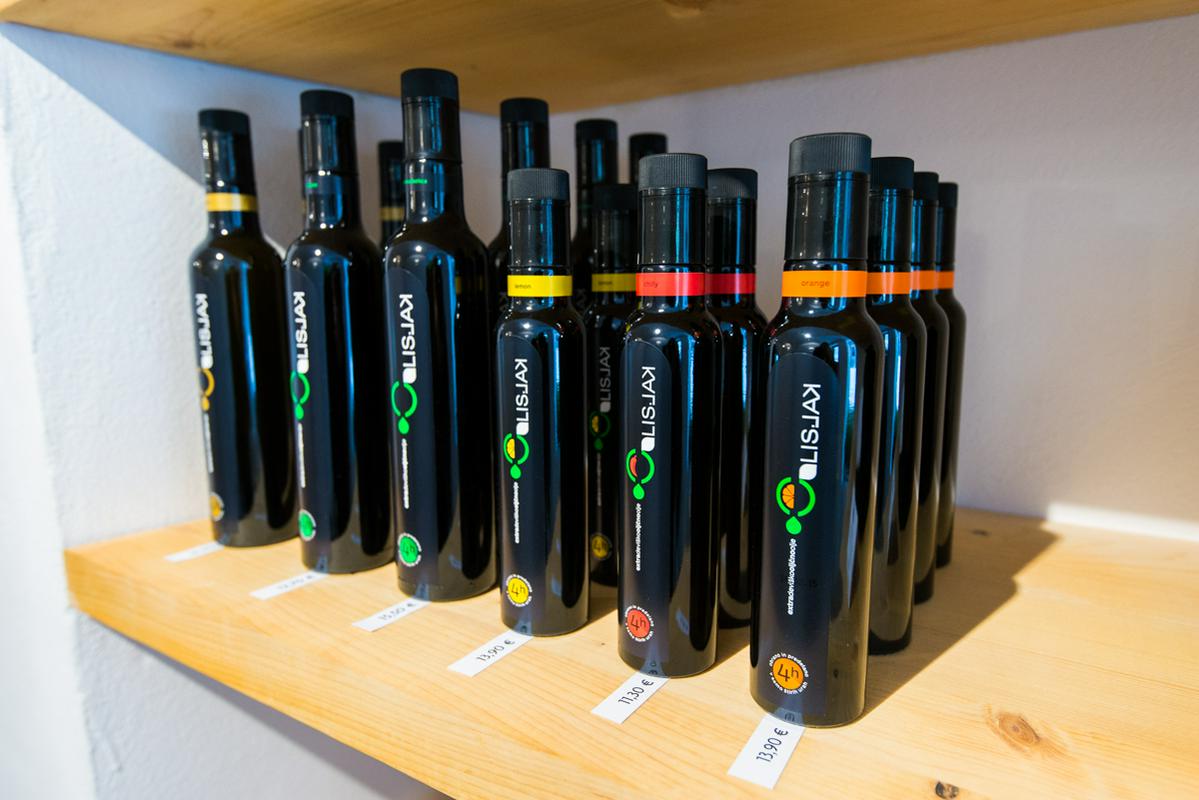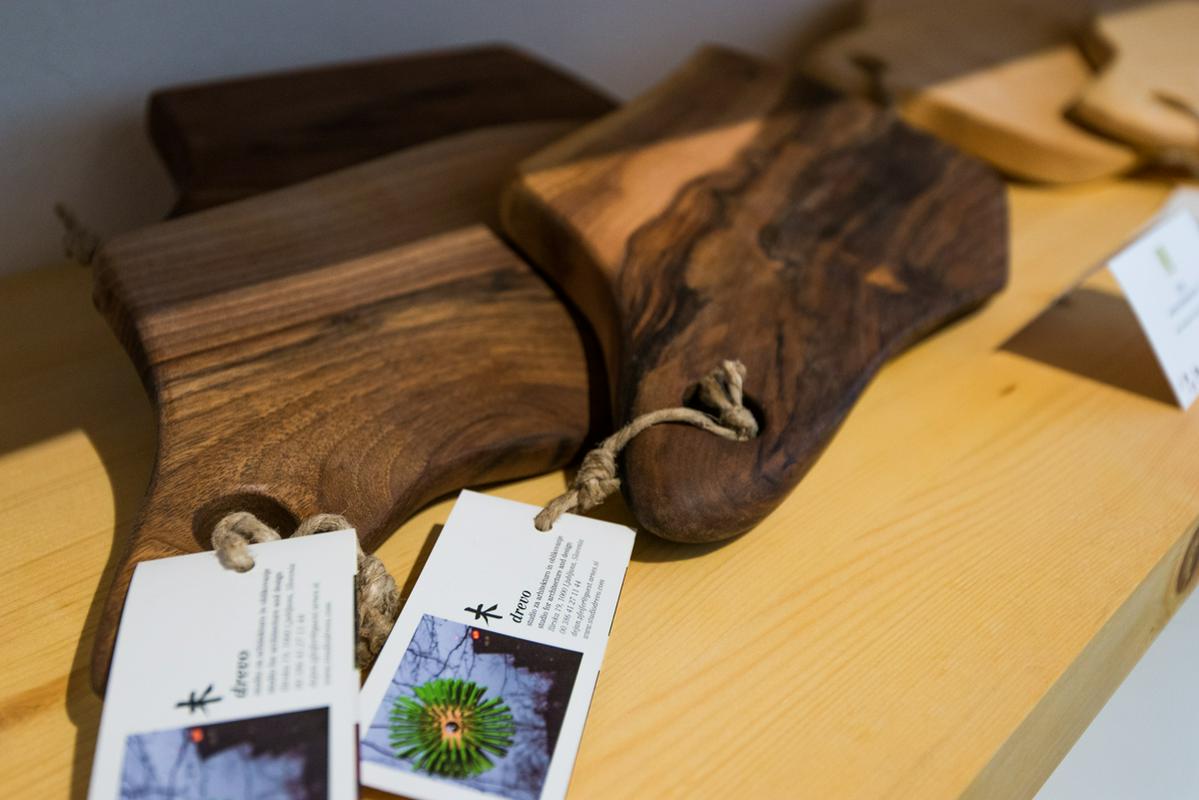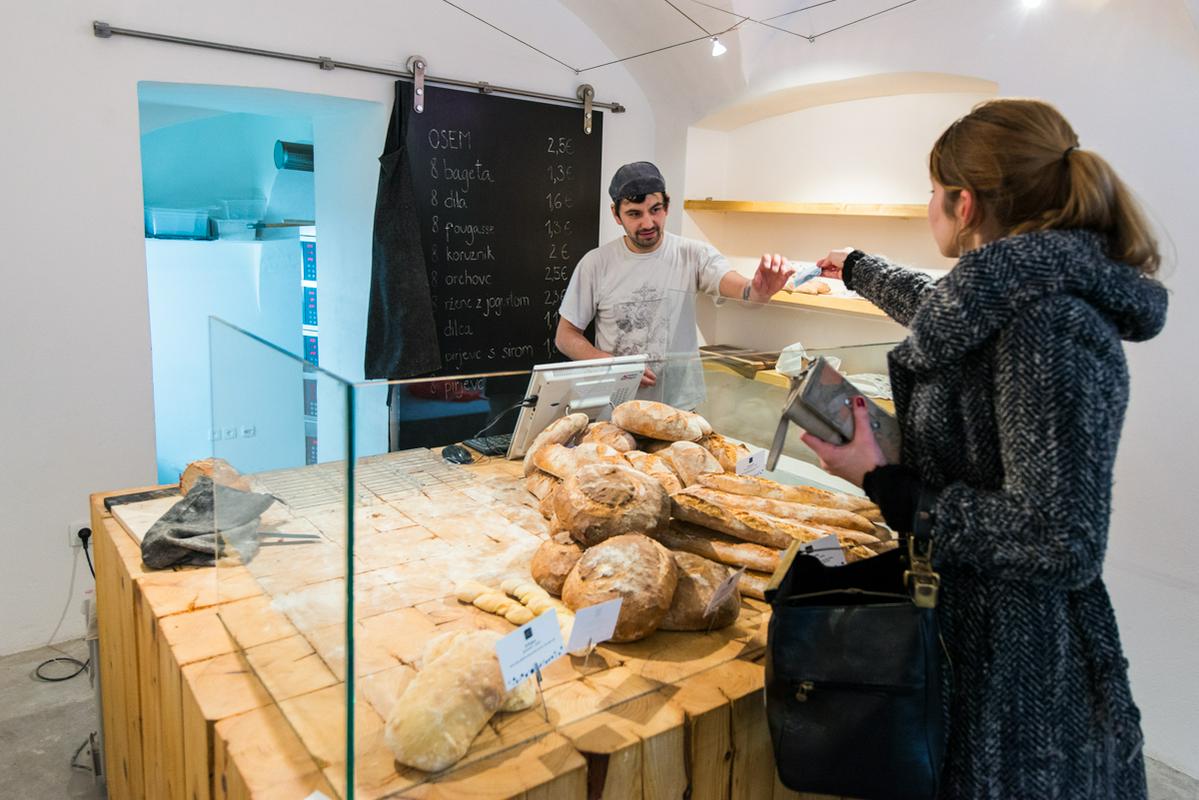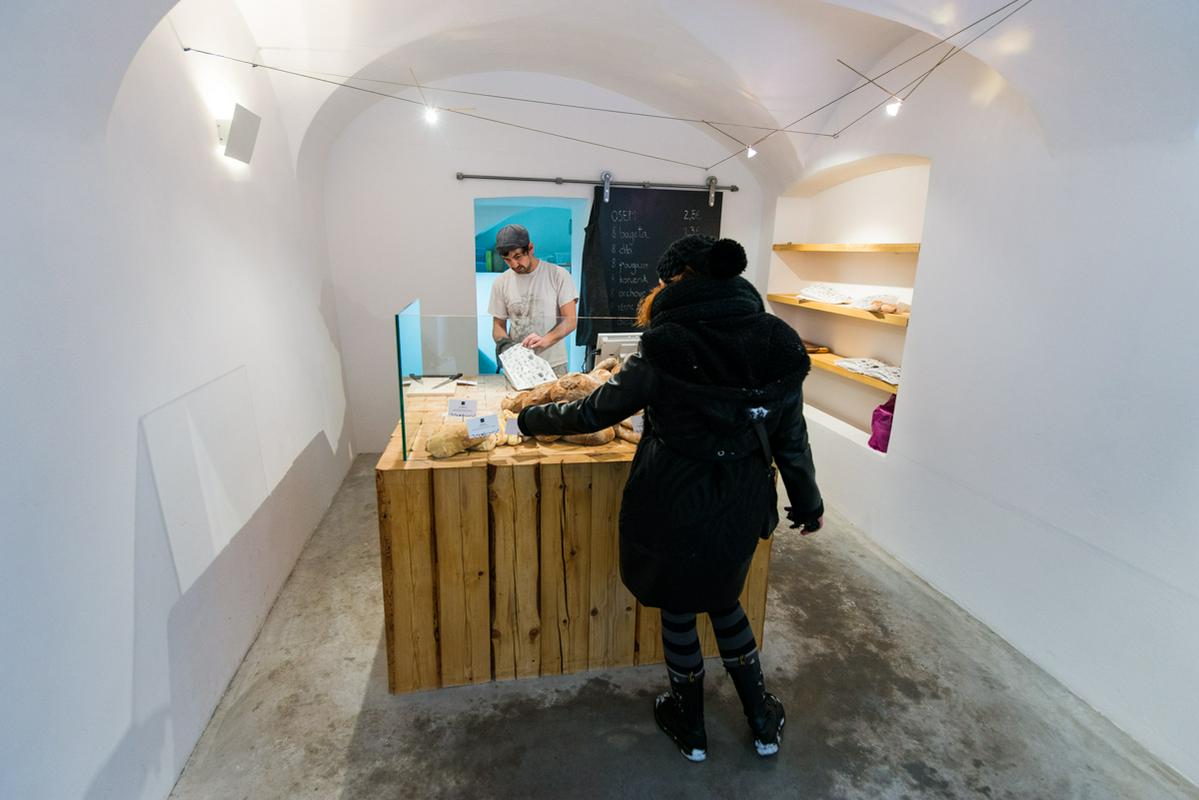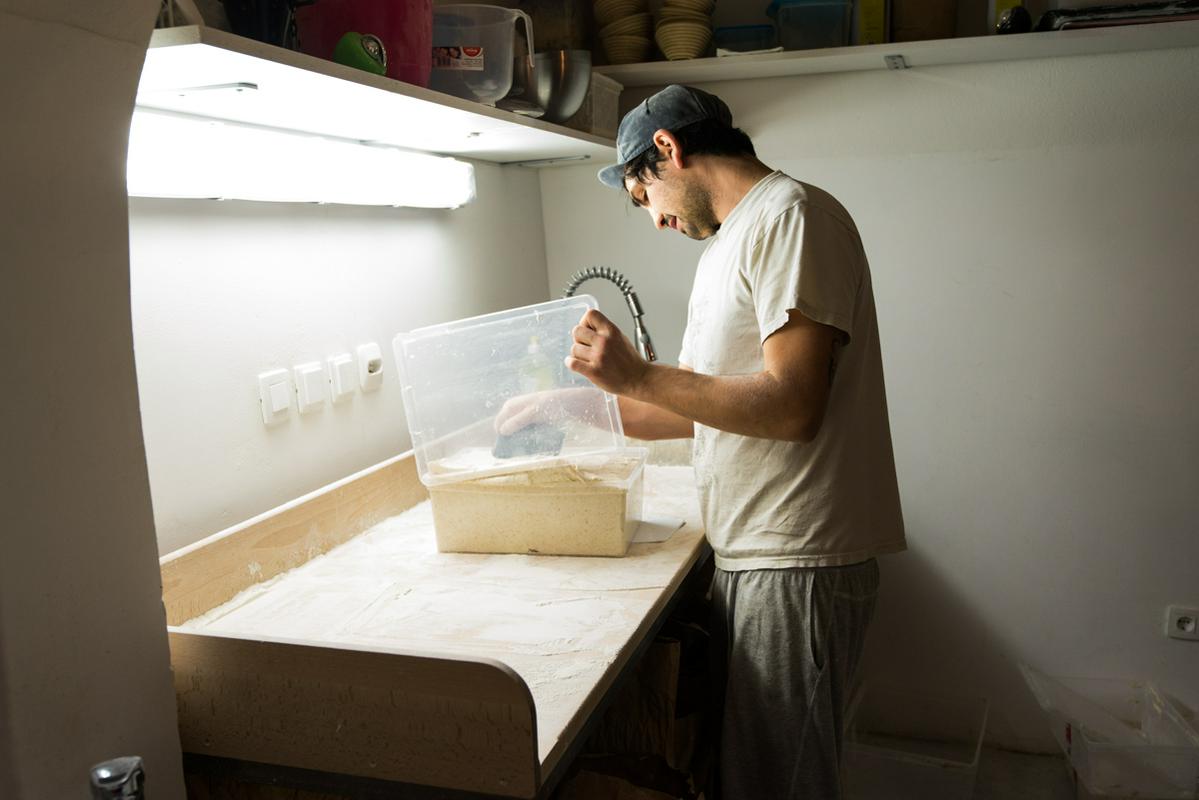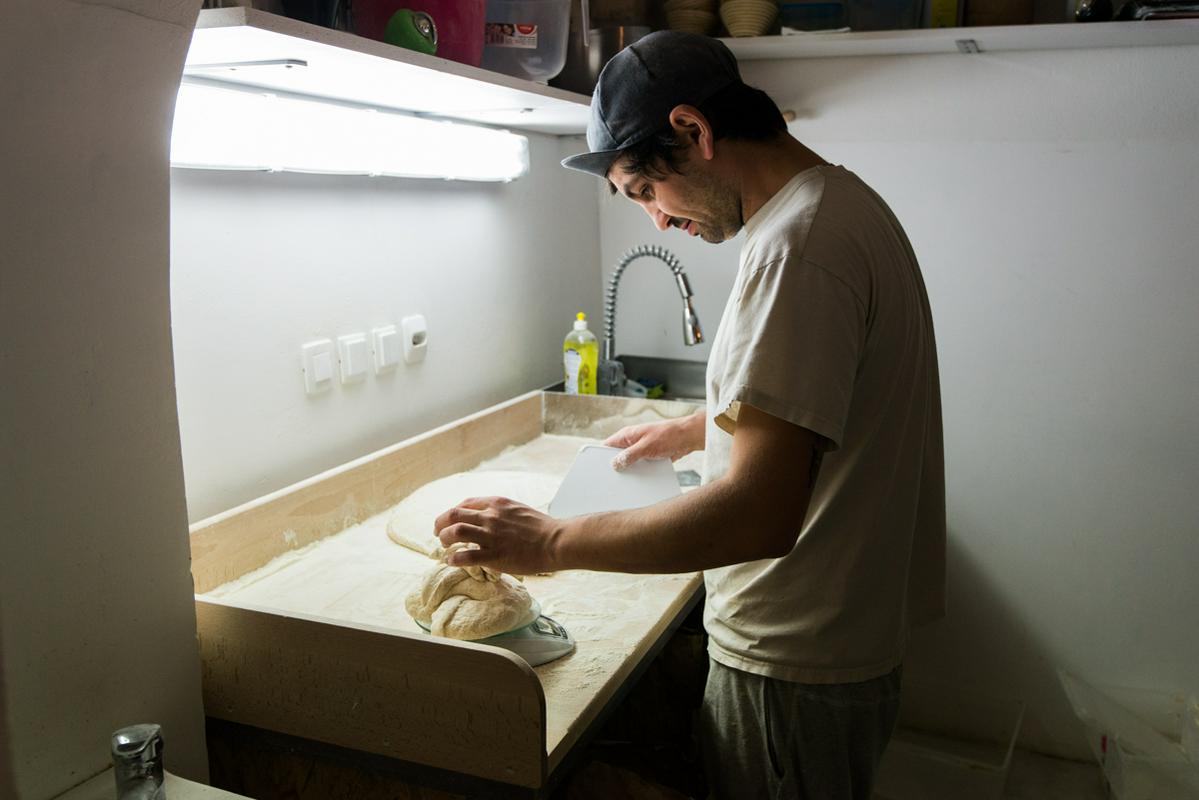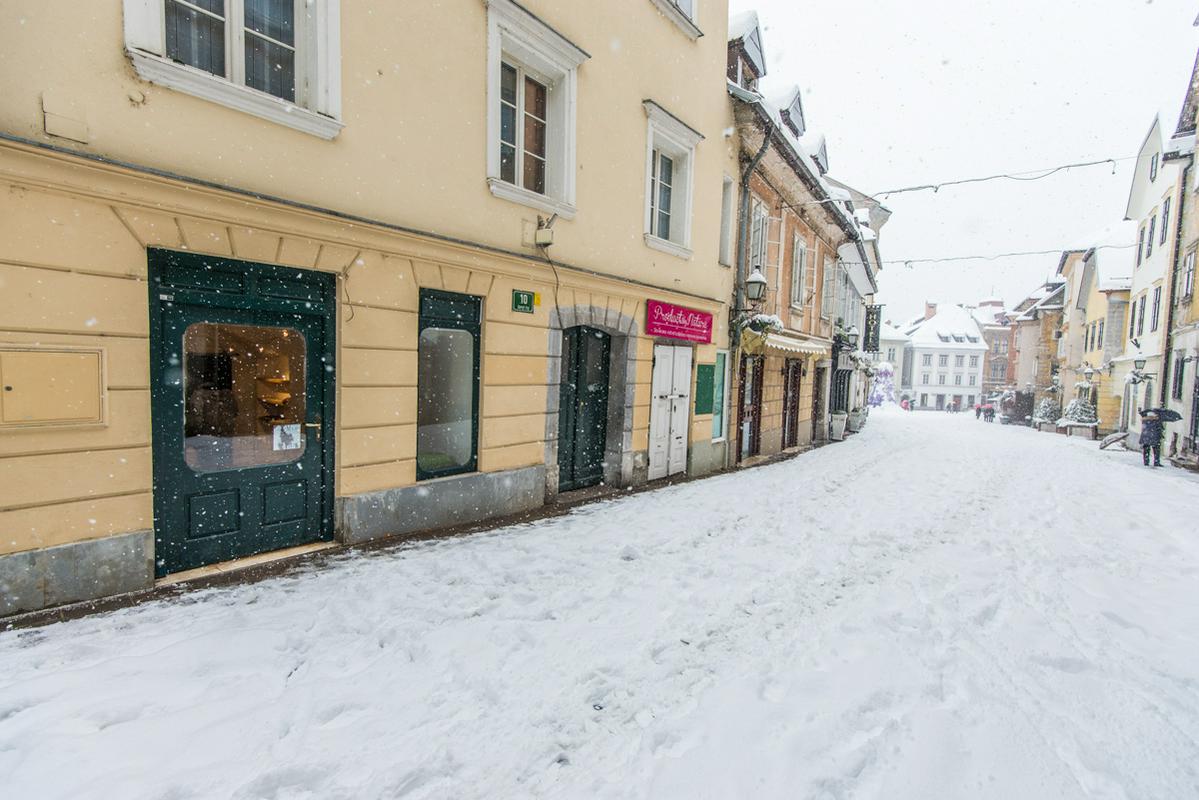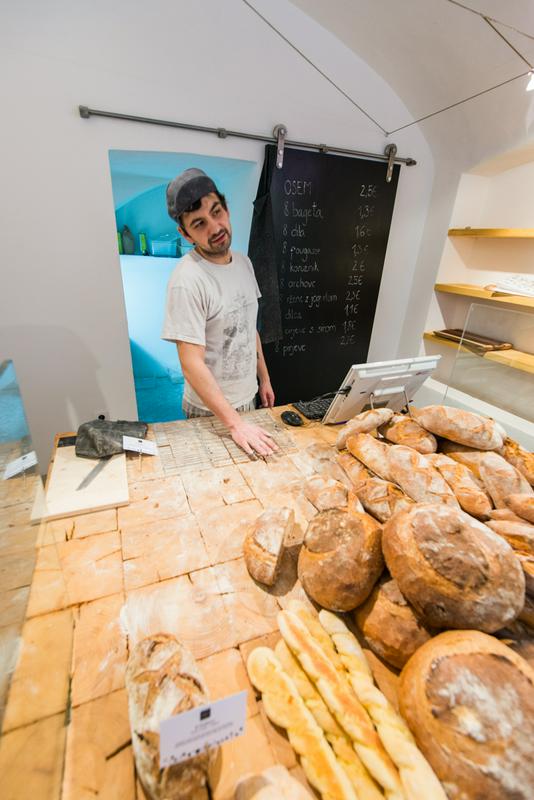
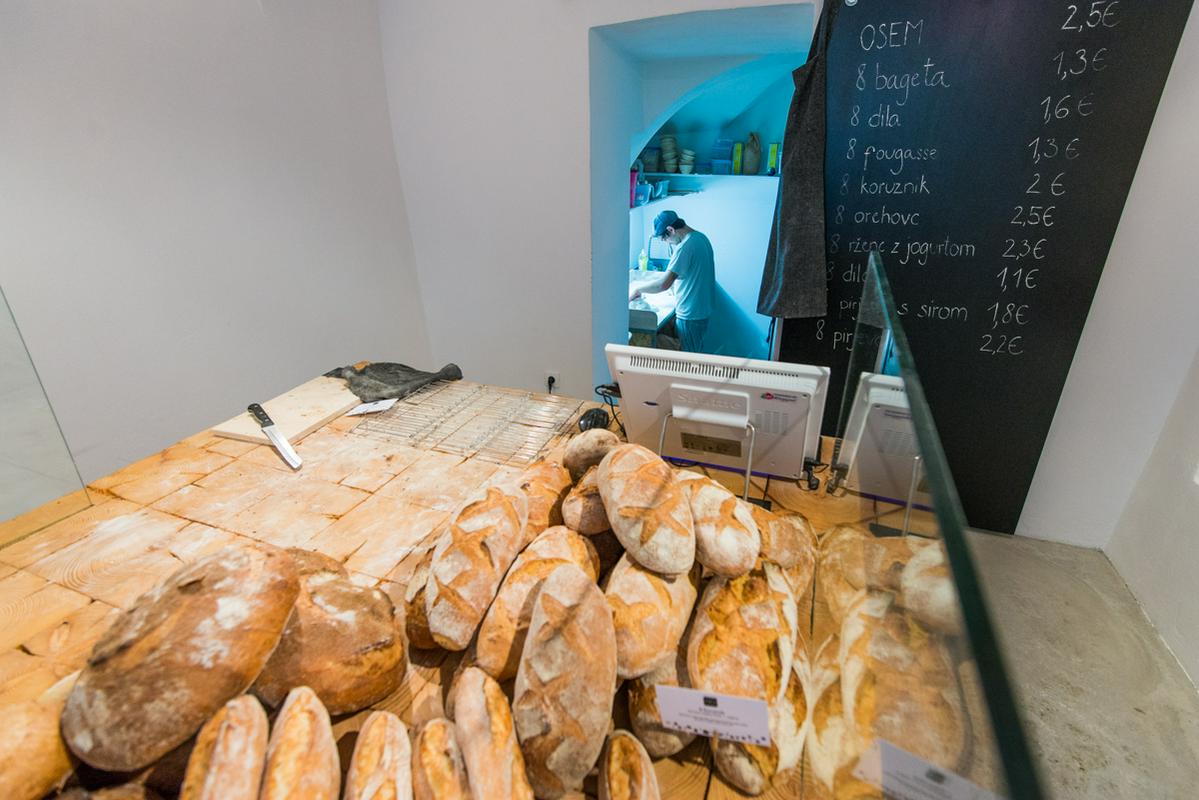
There is no doubt that bakeries with “old”, “grandma’s” and similar adjectives in their names which have mushroomed in recent years are not at all the bakeries our grandmothers knew. Moreover, it is clear that their quality is all but taintless – this has been confirmed by several inspections carried out last year, revealing the appalling conditions in bakeries.
Nevertheless, bakeries in Ljubljana have not been greatly affected by the inspection, and sometimes we start wondering how it is possible that so many bakeries can succeed in such a small area. Isn’t opening another bakery quite a risky investment? “Each business is risky,” Andrej Gerželj, the young man from Postojna shrugs his shoulders.
All the recipes are a result of his own work: he discovered them after years of research and experimenting. Moreover, he himself prepares and bakes over 200 loaves of bread a day.
From corn to walnut bread
The current offer includes corn bread, walnut bread, spelt bread, rye bread with yoghurt, spelt bread with Tolminec cheese, little board, fougasse, and French loaf. Gerželj says that for now he has no plans of expanding the range. For making dough he uses no yeast (or the smallest amount of it) and almost no additives. The process of raising is long (it can take up to three days). He has flour delivered from the 200-year-old mill Košak in the Dolenjska region.
The 31-year-old man from Postojna is not a baker by profession; however, he is a great enthusiast of all kinds of bread. Thus, as early as in secondary school he showed interest for bread and bakeries which in France can be found on every corner. He turned to several experts for advice on recipes and techniques – the Dutch, Americans and, of course, the French.
He opened a Slovene-style “boulangerie” in Ljubljana’s Gornji trg, not far away from another trendy buffet Repete (in English: seconds), which is supplied by bread from the OSEM bread shop. In winter, the bakery is warm and filled with delicious smell; the smell of fresh bread wafts across the streets each time the door of the bakery with a conceptually designed interior is opened.
The interior was designed by Gerželj’s better half, the architect Barbara Debevec from the architectural studio Plusminus30. They couple is expecting their second child, so when we visited them the atmosphere in the bakery was quite emotional.
A bakery with style
Ms Debevec has followed the guidelines of modern minimalist Scandinavian design: she joined white walls merely with a massive counter made of spruce, wooden steps, which encourage you to sit on them, and rustic wooden shelves full off bottles of the Slovene top quality olive oil by Lisjak, flour by Košak, SQUAT breadbaskets and wooden design boards by the company Drevo.
The bread is packed in black-and-white paper bags, decorated with drawings by Zoran Pungečar.
The bakery is open from 8 am (as its name suggests) to 6 pm. Surprisingly, the bread is mostly sold out until 3 pm or 4 pm (French bread is mostly sought after). However, Gerželj says that he will not give in to pressure from capitalism and bake more bread, as this would lead to lower quality. Moreover, it is the quality that makes OSEM different from its competition.
Kaja Sajovic, translated by D. M.




















































